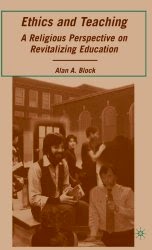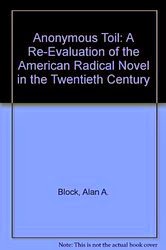Detectives 2
Terry Eagleton defines evil as “the death drive, turned outward so as to wreak its insatiable spitefulness on a fellow human being.” From Eagleton’s perspective, evil represents a hating of life and of self; that hatred is then projected outward. This projected death drive cum evil represents a desire for nothingness, a drive toward our disappearance after having been “savaged by the superego, ravaged by the id, and battered by the external world” The self longs to end its suffering by emptying the self into nothingness. Freud argues that the origin of projection can be found in the attempt to deal with internal excitations that increase displeasures. In order to relieve these tensions cum neuroses the individual treats the displeasures as it was caused by something outside, and therefore they can protect themselves from these displeasures by eliminating the outside either by destroying it or the self. Evil can be understood as a weakness, an inability to bear the slings and arrows of outrageous fortune. Rather than accept that reality is always an insult, the individual does not learn to live, and rather than commit suicide the self projects its nothingness outward onto others who can be eliminated because they are defined as nothing. Eagleton continues, “Yet, this furious violence involves a kind of lack—an unbearable sense of non-being, which must, so to speak, be taken out on the other.” Rather than eliminate the self, one murders the other. Eagleton offers the words of Milton’s Satan: “Nor hope to be myself less miserable/By what I seek, but others to make such/As I . . . for only in destroying I find ease/To my relentless thoughts.” Now, Iago, too, is evil; the motives behind his actions continue to shift throughout the play. Why Iago incites Othello to jealousy, murder and suicide remains uncertain; throughout the play Iago continually invents motives and explanations for his actions. In William Golding’s Lord of the Flies, Jack enacts evil in his seemingly senseless theft of Piggy’s glasses and finally Piggy’s murder. On the contrary, in Hamlet the motives of King Claudius are crystally clear: he wants the throne and the queen, and he will murder his brother to attain both. He is a very bad man, but I do not think I would not call him evil.
And so it would seem are the murderers in the detective fictions I enjoy. They are bad people but they are not evil. The motives for their deeds are clear and always revealed in the end, and these motives are usually somewhat pedestrian: jealousy, greed, contempt. That so many of these stories take place in non-city environments suggests that there is not in small towns and villages what we citified people imagine a purity, innocence and natural beauty. Rather, in shows like Inspector Lewis, Broadchurch, Inspector Morse, Vera, Brokenwood Mysteries, George Gently, and Midsommer Murders; in the plots in Dorothy Sayers’s Gaudy Night and The Nine Tailors and P.D. James’s The Private Patient and The Black Tower, the small towns and villages are rife with the bad. And in these novels and shows it seems that the baddest amongst the suspects and perpetrators are the academics and the wealthy. In this regard I might say that the detective genre can appear even progressive. But there could be no defense against evil.
In the detective stories and shows I enjoy it is not evil on display but the seven deadly sins. In these iterations of the genre the actions of the murderers derive from lapses of self and not from the self’s negation, though perhaps Hannibal Lecter in Thomas Harris’s The Silence of the Lambs might be described as evil. And interestingly, the final episode of Season 3 for the show, Unforgotten, does hinge on the presence of evil, and the detective Cassie Stuart’s recognition of it horrifies her and she is so horrified by it that she leaves the force. As for myself, I am offended at the presence of the unscrupulous but I am frightened by evil.












